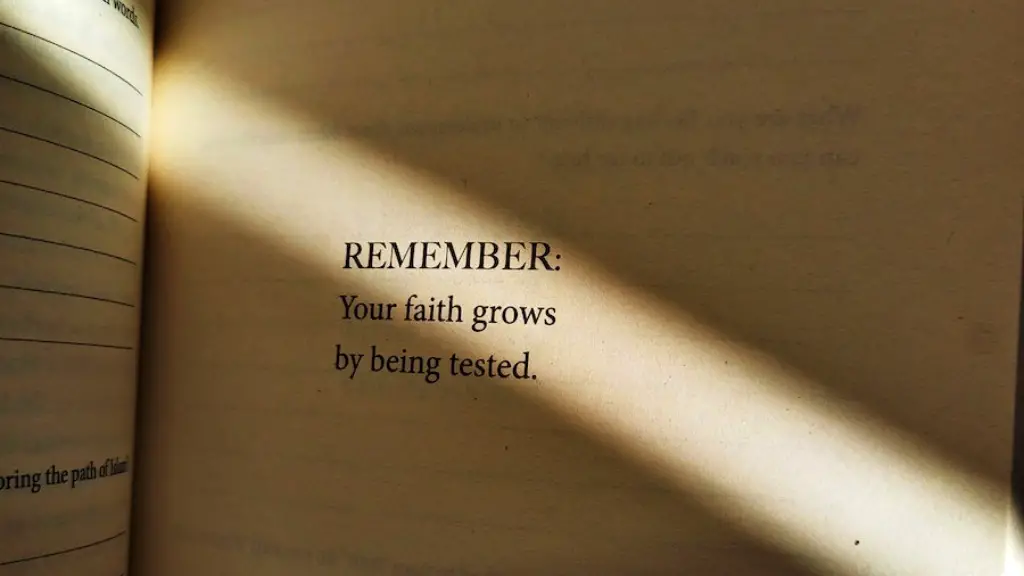Religion, poetry and mysticism
Sufi poetry is a form of Islamic spiritual expression, which is highly influenced by the teachings of the Quran, mystics in the Islamic tradition and a complex range of emotions. Sufi poetry is written in many languages, however almost all of these verses reflect upon the quest for understanding the metaphysical world and its relationship to God.
The term “Sufi” comes from the Arabic word “suf,” which means “woolen clothing.” This refers to the ascetics of the 8th century who used to wear woolen garments as part of their devotional practices. Many went further, shunning worldly possessions and dedicating their lives to spiritual exploration and the search for inner truth. Men, women and children of all ethnicities have taken part in Sufi traditions over the centuries.
Sufi poetry seeks to express the profound spiritual yearning and desire for a closer connection with Allah. This connection is often portrayed through the use of metaphor, such as the metaphor of a human desiring love from a loved one like a lover seeking his beloved. Sufi poetry also explores deeper concepts such as the transitory nature of life, and its themes range from the ecstatic joy of union with Allah to the sorrow of separation he experiences in his absence.
Sufi poets often portray their long journey of spiritual searching, their struggles to find inner peace and the profound experiences of mystery they encounter along the way. Their aim is often to lead the reader or listener to experience a spiritual state of being in which one transcends physical reality and can be open to divine guidance. Sufis write poetry in a variety of metres, but they are also known for using creative and innovative techniques, such as alternating between different metres or using rhyme and assonance to bring focus and to help ensure the flow of their work.
Sufi poetry has been popular for centuries and has been an important source of spiritual nourishment for many people in Muslim communities. Scholars have studied the works of many Sufi poets, and have commented on the depth of their expression and their sensitivity to the divine. Sufi poetry has been used to comfort people during difficult times in their lives, as well as to celebrate the joy of connecting with God.
Rhyme and metre
The use of metre and rhyme is an important part of Sufi poetry. Metre refers to patterns of rhythm which writers use to create a sense of cohesion and emphasis in their work. Sufi poets have used different metres to convey different meanings and to express different levels of spirituality. Rhyme is used to help the flow of the poem and to emphasise certain words or phrases. Sufi poets may also use assonance, which is the repetition of a vowel sound in a line of verse.
Sufi poets use these tools to bring out the hidden spiritual depth of their writings. In addition, the use of metre and rhyme has a practical purpose, as they help the listener or reader to remember and internalise the verses, thus allowing the words to take on a much deeper level of meaning and resonance.
In addition to using metre and rhyme, Sufi poets also make use of the repetition of certain words or phrases throughout a poem, as well as alliteration (the repetition of a consonant sound at the beginning of words). This technique has been used to create a certain mood or atmosphere, or to bring emphasis to a particular point.
Sufi poets also make use of literary devices to create an emotional experience for the reader or listener. Ellipses, for example, are often used to create the impression of pauses in the poem that can lead the reader on a journey of reflection. Imagery and symbolism may also be employed, with the aim of helping the reader to visualise the divine and to experience a connection with the divine.
The spiritual journey
Sufi poetry often expresses the spiritual journey of a Sufi, from the search for God through to union and final acceptance of the divine. The journey of spiritual growth and exploration is common in many Sufi poems and it is often conveyed through the use of metaphor and imagery. This journey often includes themes of longing and hope, as a quest to find inner peace and understanding.
For example, a Sufi poet might use the metaphor of a desert pilgrimage to portray the journey of spiritual seeking. This metaphor is often used to communicate the idea of a long, arduous journey, marked with various stages and experiences. Similarly, the poem might portray the journey from darkness to light, as a quest for knowledge and understanding of the divine.
Sufi poets also often write about the experience of pain and sorrow and its role in the spiritual journey. The pain of separation from Allah is often depicted, as well as a sense of longing and deep despair. This is counterbalanced by a deeper understanding of Allah’s love, mercy and compassion, and is often an expression of the Sufi’s desire to be reunited with the divine.
Sufi poetry may also include the theme of love between the beloved and the lover, with Allah as the beloved. This type of poem is a way of expressing the intensity of Sufi devotion and the longing to be reunited with Allah. The poet conveys the idea that even though the beloved (Allah) is distant, the love between them is still strong and can be experienced on an emotional level.
The power of Sufi poetry
Sufi poetry has inspired many people over the centuries and continues to be an important source of spiritual nourishment for many people today. The power of Sufi poetry lies in its ability to transport the reader or listener to a deeper, mystical realm. On this journey, one can make a personal connection with the divine and experience profound peace, love and connection.
Many Sufi poets have also used their poetry to convey messages of hope in difficult times and to remind people of the mercy, love and compassion of Allah. By using creative poetic techniques, they have been able to create a unique literary form which has been a bridge between the physical and spiritual worlds.
Through the ages, Sufi poetry has remained an essential part of Islamic literature and culture. It has been revered as a powerful source of spiritual nourishment and has been used to comfort the hearts of many, as well as to inspire people in their quest for inner peace, understanding and connection with the divine.
The impact of Sufi poetry on modern culture
Today, Sufi poetry has transcended its original religious context and has been embraced by people of all faiths. It has been used for a variety of purposes, from political protest to works of national literature. Its messages of hope, love, mercy and compassion have been felt around the world, as have its power to uplift the spirit and to encourage spiritual exploration.
Sufi poetry has also been the basis for various musical genres, from qawwali to hip-hop. Its influence has been felt in the works of many contemporary Muslim artists, who take traditional Sufi themes and reinterpret them in modern contexts. Its impact on art, literature and music has been tremendous and it continues to inspire people of all backgrounds and beliefs.
In addition to its influence on culture, Sufi poetry has provided a unique platform for spiritual exploration. The poetic expressions of Sufi poets are often highly personal and they often meditate on deep existential questions. Through the centuries, Sufis have explored themes such as love and longing, sorrow and joy, unity and separation in a very nuanced and often profound way.
Spiritual rituals and practices
Sufi poetry often has a direct link to spiritual rituals and practices. These include the dhikr, which is the ritual of remembrance of Allah and can involve chanting, meditation and reading the verses of Sufi poetry. Du’a, which is formal prayer, can also be used as a form of meditation and is often accompanied by the chanting of Sufi poetry.
Sufi retreats, which are times of spiritual retreat, can also involve chanting and reciting Sufi poetry. During these retreats, the poetry is often used as a tool to help the participants to transcend their physical reality and journey deep within themselves. The aim of these practices is to help people to open up to divine guidance and to experience a deeper connection to Allah.
The use of Sufi poetry in spiritual rituals and practices has played an important role in the growth and evolution of Sufism. Through the centuries, Sufi poets have used their poetic works to communicate spiritual ideas, to inspire and to offer a glimpse into the divine. In this way, their poetry has been an integral part of the spiritual journey for many people.
Conclusion
Sufi poetry has had an immense impact on Islamic culture, art and literature. Its messages of love, mercy, hope and understanding have been felt around the world and have inspired many people on their spiritual journey. Through the use of poetic techniques, Sufis have been able to convey powerful spiritual messages, which often transcend religious boundaries. Even today, the works of Sufi poets continue to be highly regarded, and their influence on modern culture is undeniable.





